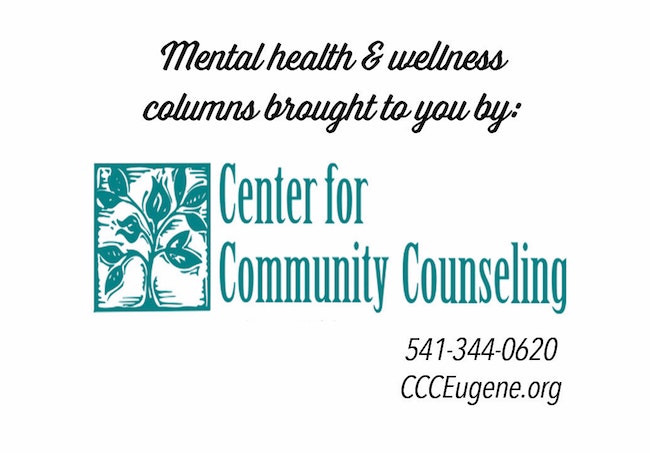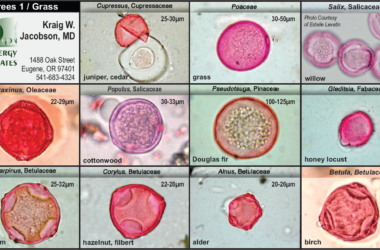
Editor’s note: In partnership with the Center for Community Counseling, The Chronicle publishes columns addressing mental-health issues in our community. Reach out for help at 541-344-0620 and.ccceugene.org.
Living in a global pandemic for the last two years has created incredible uncertainty and anxiety for many people. There is a certain kind of exhaustion that a perpetual state of hypervigilance produces; never having fully resolved the stress we’ve carried in our bodies and minds throughout the past two years. This type of fatigue can make it difficult to function. With less emotional energy to expend, it makes sense that many of us are experiencing overwhelm and higher levels of disconnection from ourselves and others. More than ever, we could benefit from research-based coping skills to better navigate this type of “long-haul” stress. Dialectical Behavior Therapy (DBT) is one approach that could offer support toward that end.
What is DBT? DBT is a therapeutic approach that borrows elements from the more widely known cognitive-behavioral (CBT) style of therapy. For both, the goal of therapy is to identify negative thinking patterns and the unhelpful behaviors and feelings that often follow. For example, a negative thought pattern could be “I am not good at making friends.” The follow-up behavior might be to isolate and withdraw from others which in turn produces feelings of loneliness and shame. Bringing awareness to this cycle allows people to recognize and understand their own predictable triggers so they can choose more effective responses that lead to better behavioral and emotional outcomes.
DBT focuses on four main components that work together to improve psychological and emotional function: mindfulness, interpersonal effectiveness, distress tolerance, and emotional regulation. Developing skills in each of these areas are central to DBT therapy and helpful for people who have difficulty with emotional regulation. As we mentioned above, most of us can relate to this reality in the wake of COVID-19!
Here are definitions of each of the four parts:
Mindfulness: Living with an intentional and curious awareness of the present moment without judgment or attachment to the outcome
Interpersonal effectiveness: Using effective interpersonal communication skills to uphold respect for self while balancing respect for others
Distress tolerance: The ability to manage actual or perceived emotional distress
Emotion regulation: The capacity to govern difficult emotions and express them
appropriately
If you are interested in learning more about the benefits of DBT including becoming less reactive in your relationships, being able to regulate feelings of volatility and emotion overwhelm, learning and adopting mindfulness techniques, incorporating practical tools and strategies to improve your relationships with yourself and others, interested in learning how to react to challenging situations in more effective ways, and gaining wisdom about how to maintain balance in your life please call Center for Community Counseling (CCC) to inquire about our upcoming, 8-week DBT Group that will explore the following topics:
■ Understanding your options for approaching problems
■ Figuring out what gets in the way of making effective choices
■ Challenging myths that limit interpersonal effectiveness
■ Learning to observe and describe behaviors non-judgmentally
■ Clarifying goals in interpersonal communication
■ Discovering pros and cons of emotional reactions
■ Practicing responding to others more effectively
■ Reducing vulnerability to emotions and impulses
■ Skills for surviving and thriving in the face of challenges.
Groups are a great way to find support and learn new skills so if you or someone you love could benefit from this group or further support in these areas, please call the center at 541-344-0620 for more information.
Katelyn Pierson is enrolled in a Marriage and Family Therapy program through Touro University Worldwide and completing her practicum hours as a volunteer, intern therapist at Center for Community Counseling and Center for Family Development in Eugene.







